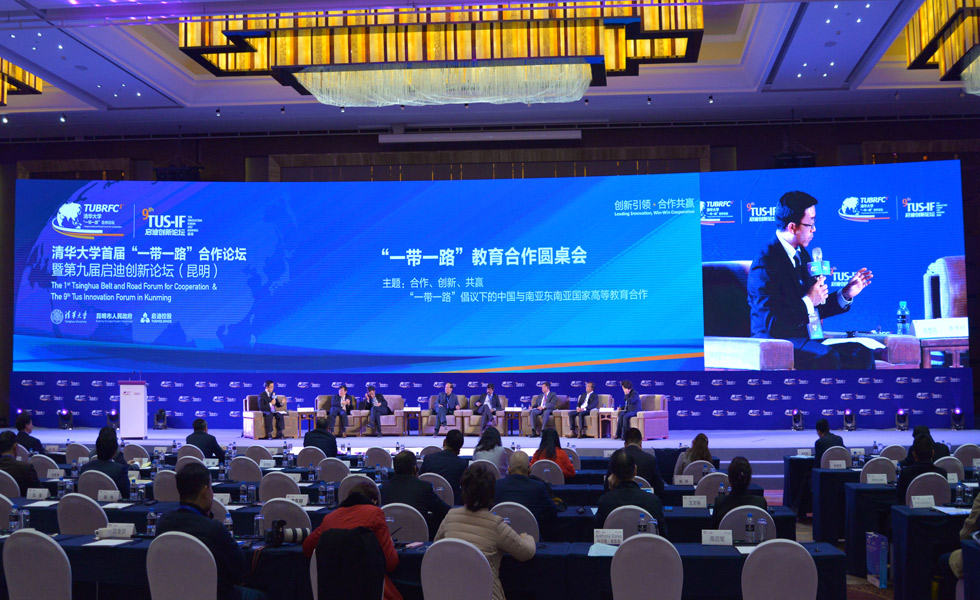VeChain, Tsinghua University, & DNV GL propose new Belt and Road Blockchain Application Technology Alliance

December 19th – The Third “Belt and Road” Cooperation Forum took place at the National Exhibition and Convention Center in Shanghai. The forum was co-organized by Tusstar, a large incubator in China with links to Tsinghua University, an institution consistently ranked as China’s top University. The forum’s theme was “New era, new ecology, new development.”

During the forum, three major platforms were announced: A Yangtze Delta AI Industry Alliance, A “Belt and Road” Blockchain Industry Alliance, and a Tusstar Industrial Empowerment Center.
For VeChain enthusiasts, the “Belt and Road” Blockchain Industry Alliance will have the most relevance. Tsinghua University’s Belt and Road Strategy Research Institute, China Industrial Internet Research Institute, Tusstar Blockchain Group, China Silk Road Group, VeChain Technology, and DNV GL jointly proposed and co-founded the “Belt and Road Blockchain Application Technology Alliance”, which aims to bring together research and cooperation for innovative new landing applications of the blockchain in the Belt and Road Initiative (BRI).

The “Belt and Road” is a global development policy designed to improve infrastructure and link China with more than 100 countries across Asia, Africa, Europe, and Oceania through trade. Investment from China alone in the project is estimated to be between $1 trillion and $8 trillion. The bulk of it is going into shipping and overland trade routes, including roads, airports, railways, deep-water ports, as well as social projects like hospitals, schools, and other infrastructure. For a public blockchain that has dozens of use cases related to supply chain, this is a match made in heaven.
Besides just being an effort to accelerate trade, China puts exceptional pressure on the plan to increase their Geo-political weight and counter the US influence. President Xi Jinping has made this the focal point of his economic policy, and has pushed the BRI deep into society, including in primary school curriculums.
This announcement follows a recent flurry of calls for enterprise blockchain research and adoption, led by Chinese President Xi Jinping. According to the article appearing on state-run media portal Chinanews.com, VeChain Tech was the only blockchain partner of the industry alliance, showing the progress VeChain has made at building connections with influential organizations within China. And while this is still at the proposal stage, DNV GL and VeChain have managed to combine two of the president’s favorite things: enterprise blockchain solutions with the BRI. A very promising start, and definitely following a strategy that has been well-coordinated.
Tsinghua University’s role in this shouldn’t be underestimated, as they are widely regarded as the premium Chinese educational institution, attracting the best Chinese students each year. In 2019, US News and World Report Best Global University Ranking ranked Tsinghua at 2nd in Asia and 36th globally. Previously the Tsinghua University Sino-American Research Department had worked with VeChain’s ecosystem, making this the second time the prestigious institution has supported VeChain. They play an important role in shaping society, and count current president Xi Jinping, former president Hu Jintao, and many others among their famous alumni.
Additional Sources: https://medium.com/vechain-foundation/vechain-is-co-founder-of-the-belt-and-road-initiative-blockchain-alliance-briba-6bc70a0f6980?






 dnv gl,DNVdnv gl,
dnv gl,DNVdnv gl,



